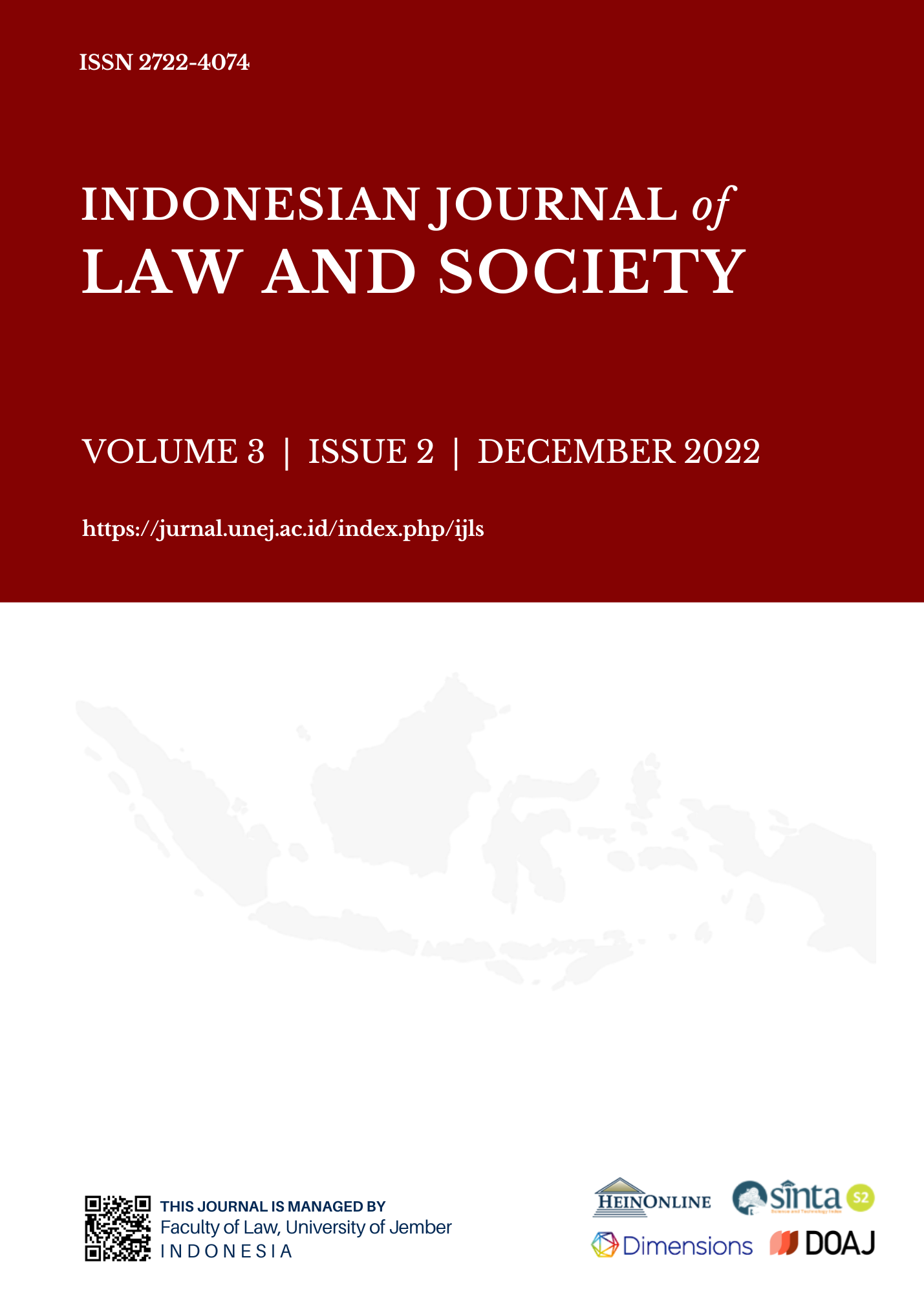State Obligation in Fulfilling the Right to Health through the Mandatory COVID-19 Vaccination
Abstract
The spread of the COVID-19 virus has become a major international health crisis. Most governments worldwide have had to impose severe restrictions on their citizens' freedoms due to the outbreak to contain the disease. After the vaccine for COVID-19 became available, many countries, including Indonesia, implemented mandatory COVID-19 vaccination. This policy is very controversial to be debated, especially regarding human rights violations (the right to freedom of choice). Therefore, this normative juridical study investigates the state's responsibility in fulfilling citizens' health rights through mandatory COVID-19 vaccination in the human rights aspect. According to the study's findings, for the sake of achieving public health safety and security as well as the fulfillment of public health rights, on that basis, the state is allowed to enforce mandatory COVID-19 vaccination. Nevertheless, the state should continue to apply it humanely that does not violate human rights by ensuring freedom from torture, cruelty, inhumanity, or any other medically degrading dignity, including freedom from medical experiments and research and forced sterilization not having informed consent. On the other hand, the state is also responsible for providing health goods and facilities without discrimination against race. Non-discrimination is essential to realize the high degree of health to be achieved. There must be accessibility, acceptability, and high quality in all products, services, and infrastructure. Lastly, the state may regulate immunizations to be administered selectively to provide maximum benefit to those most at risk.

This work is licensed under a Creative Commons Attribution 4.0 International License.
The Indonesian Journal of Law and Society has CC-BY-SA or an equivalent license as the optimal license for publishing, distributing, using, and reusing scholarly work. Authors who publish with this journal retain copyright and grant the journal right of first publication with the work simultaneously licensed under a Creative Commons Attribution-ShareAlike 4.0 International License that allows others with permission from the publisher to share the work with an acknowledgment of the work's authorship and initial publication in this journal.




